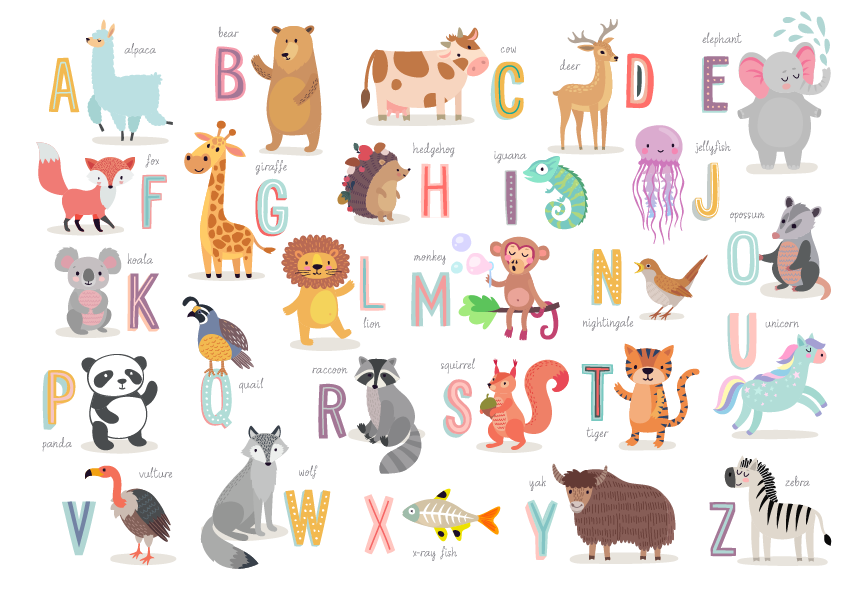When a culture encounters something new in a new place, such as during colonization, war, or mass migration, words tend to be borrowed quickly and wholesale so people can communicate new concepts. Animal words are a great example of this – it’s easier to use the native word that refers to that giant hopping thing with a pouch than to come up with a new word altogether.
Nowadays, this often happens with food – burrito, chow mien, and macaroni are just a few examples. Older borrowed words in English retained the native pronunciation more than the spelling – for a long time, English spelling was whatever you wanted it to be. More recently, however, borrowed words in English retain spelling and don’t even try for the native pronunciation. Take crepe (from French crêpe, pronounced more like crep) and gouda (from Dutch, pronounced more like gowda) for example.
Take a guess as to which of the following animal names you think are native to English. I’ve listed below the explanations for ones that are not. It’s fascinating to see just the sheer range of languages we’ve borrowed from.

A is for alpaca, which English got from the Spanish alpaca, which was in turn borrowed from the Aymara word “allpaqa”. The Aymara people are an indigenous tribe in the Andes region of South America.
E for elephant may have originated in Ancient Greek, where we can find the word eléphantos. This word has further roots in other languages, but not nearly so recognizable.
G for giraffe comes from the Persian word “zurnāpā“, meaning “flute leg”, via the Arabic “zarāfa” and French “giraffe”.
I for iguana comes from the Taíno word “iwana” via Spanish (iguana). Taíno is a language native to the Caribbean.
K for koala comes from the Dharug word “gula”. Dharug is an Australian Aboriginal language spoken around Sydney.
O for opossum is from the Powhatan word “aposoum”, meaning “white animal”. Powhatan was spoken in Virginia until around the 1790s, and is now extinct.
P for panda is from French, perhaps originally from the Nepali word for the red panda “nigálya-pónya”. Nigálya refers to a type of bamboo in Nepali, and pónya seems to actually have originated as a Tibetan word.
R for raccoon again originated as a Powhatan word: ärähkun.
S for squirrel may have originated as the Greek word “skíouros”, meaning “shade tail”. This is not a recent acquisition though.
T for tiger likewise has been in English for a long time, but may have originated as an early Iranian word meaning “arrow”.
Y for yak is from the Tibetan word “yag”.
Z for zebra was borrowed from the Italian, which was in turn borrowed from Portuguese. It seems to be traceable back to the Latin word for “wild horse”.
References
Etymology info from Wiktionary and the Oxford English Dictionary.